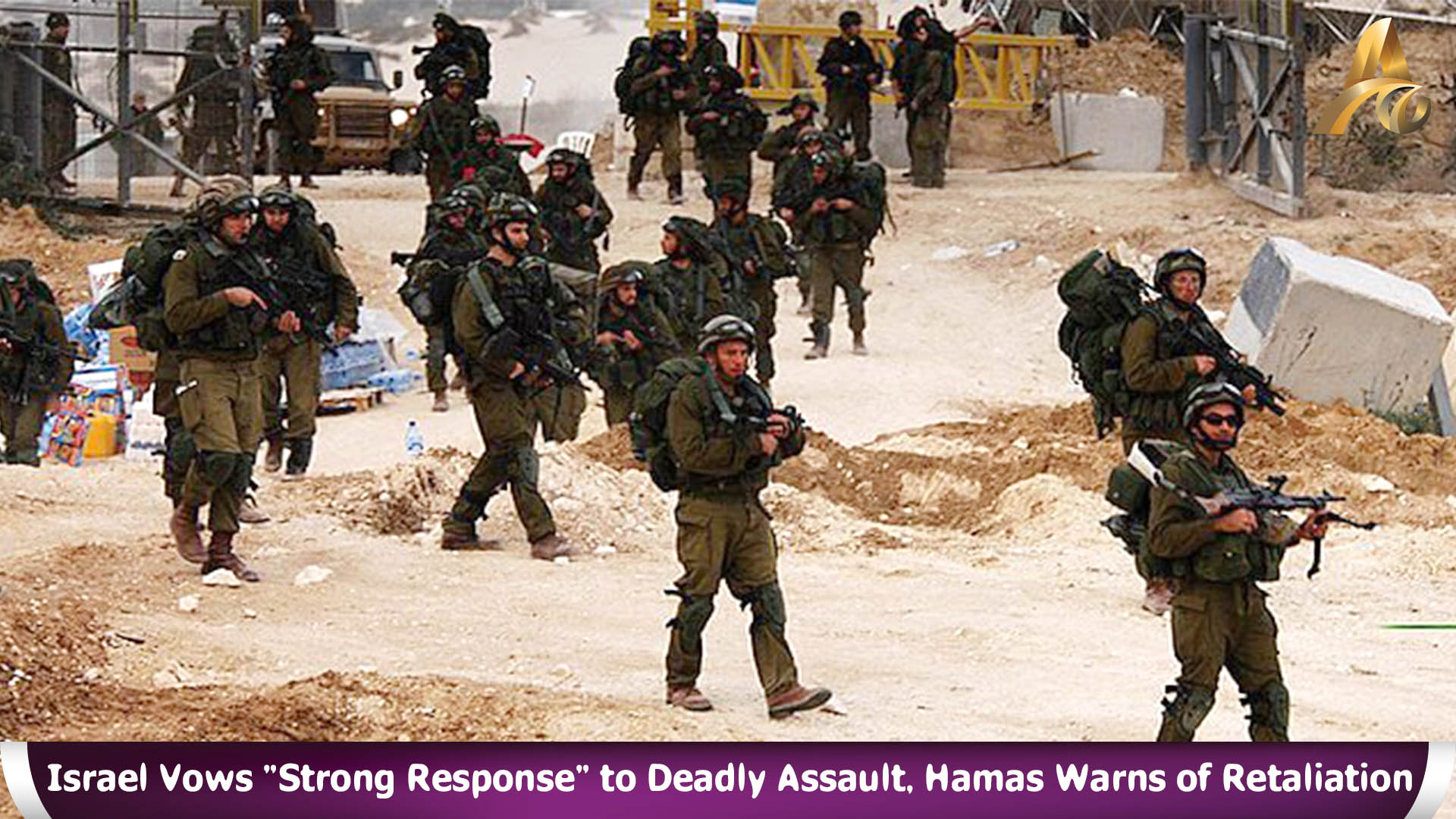JERUSALEM: In a continuing and devastating conflict in the Middle East, Israel launched relentless airstrikes on Hamas targets in the Gaza Strip for the fifth consecutive day. The death toll has tragically soared into the thousands, with Israeli Prime Minister Benjamin Netanyahu vowing to completely dismantle the militant group.
"Every Hamas member is a dead man," declared Netanyahu, drawing a grim parallel to the Islamic State group. He promised, "We will crush them and destroy them as the world has destroyed Daesh."
Netanyahu, in an extraordinary move, temporarily set aside political differences and established an emergency government. This government includes centrist former defense minister Benny Gantz, working together to address the crisis.
The crisis was initiated by a surprise attack, considered the worst in Israel's 75-year history, resulting in a staggering death toll. According to Israeli forces, 1,200 people, mostly civilians, have lost their lives in the militants' relentless onslaught. Gaza, on the other hand, has seen over 1,000 people killed in Israel's sustained campaign of air and artillery strikes, with entire city blocks razed to the ground.
Tragically, this crisis has also impacted international organizations, as the United Nations reported the loss of 11 of its staff in Gaza, and the International Red Cross and Red Crescent societies reported five of their members killed.
Beyond Gaza, the occupied West Bank has not been spared from the conflict, with at least four Palestinians killed in attacks by armed Israeli settlers. The situation has intensified, and the death toll now stands at 29, according to the Palestinian health ministry.
US President Joe Biden pledged further support for Israel, indicating a commitment to providing more munitions and military hardware. He expressed his revulsion at the civilian casualties caused by the unprecedented assault by Hamas.
As the conflict raged on, concerns grew for the fate of more than 150 hostages held in Gaza by Hamas, a group that has already claimed casualties among the captives in Israeli strikes.
Humanitarian concerns also came to the forefront as the crisis worsened in Gaza. With over 1,000 buildings destroyed, Gaza is now facing a dire situation with severe shortages of essential supplies like water, food, and energy. The power plant in Gaza has shut down due to fuel shortages.
Over 260,000 Gaza residents have been displaced from their homes, and the Secretary-General of the United Nations, Antonio Guterres, voiced fears of a further deterioration in the already dire humanitarian situation. The European Union called for a "humanitarian corridor" to allow civilians to flee the conflict zone, and the Arab League foreign ministers called for immediate aid to be allowed into Gaza.
Israel appeared to be preparing for a potential ground invasion of Gaza, with the added complication of rocket attacks from militant groups in neighboring Lebanon and Syria. Israel engaged in strikes in southern Lebanon, controlled by Hezbollah, an Iran-backed group.
The crisis, which has been dubbed "Israel's 9/11," has led to a political alliance between Netanyahu and Gantz, with a pledge to freeze a controversial judicial overhaul plan that had sparked massive protests. Opposition leader Yair Lapid has not joined this alliance, but the joint statement mentioned a "reserved" seat for him in the war cabinet.
As Israel grapples with the deadliest attack in its history, the conflict has exposed a significant intelligence failure, leading to the coordinated assault by Hamas. The scale of violence has deeply shaken the nation, with at least 1,500 Hamas militants reported killed in street battles.
Israeli forces have also taken back several towns near Gaza, with house-to-house searches uncovering a significant number of civilian casualties. The Israeli army reported 169 fallen soldiers, and the call-up of 300,000 reservists indicates that a long and challenging war may lie ahead.
In the midst of this tragedy, the world watches as violence continues to engulf the region. Heavy bombardments persist in Gaza, leaving destruction in their wake. Concerns continue to mount for the civilian population as the conflict shows no sign of abating.
Fears and distrust have intensified not only in the conflict zones but also within Israel itself. Jewish and Arab-Israeli residents have reported growing tensions and a sense of fear, casting a shadow over cities that were once known for their vibrancy.
As international and regional powers engage in frantic diplomacy, the world remains on edge, hoping for a resolution that can bring an end to this devastating conflict and prevent a wider conflagration in the Middle East.

























